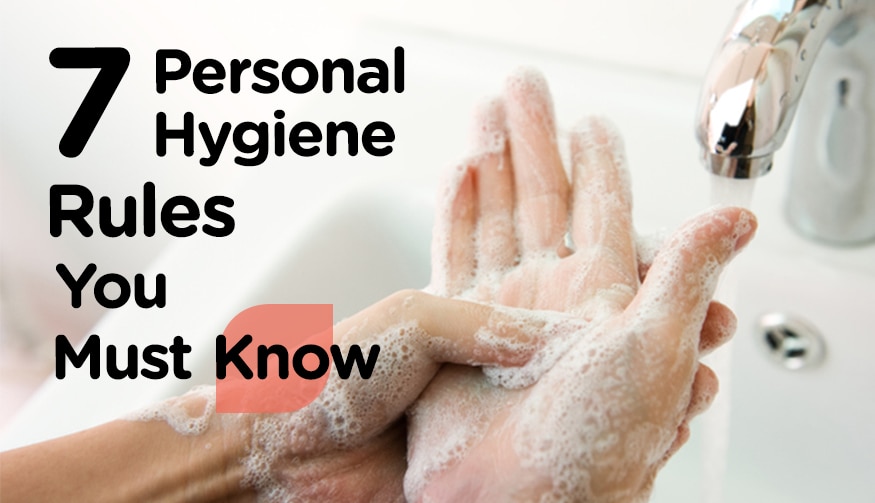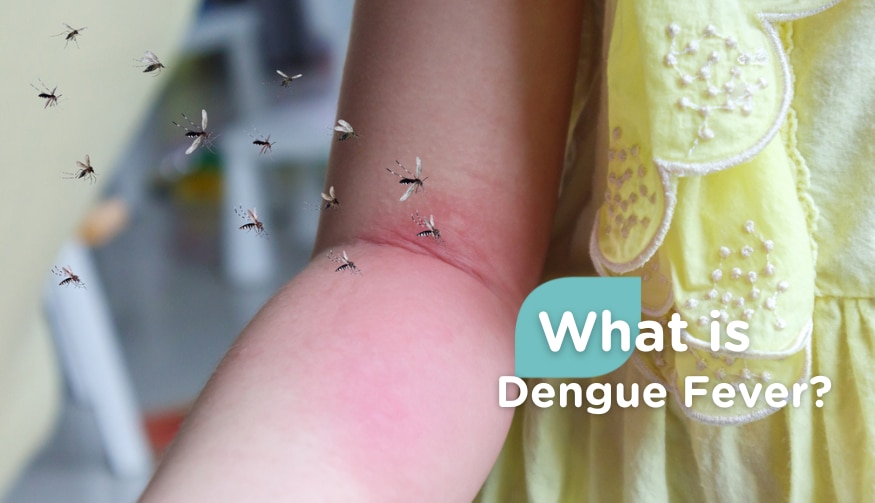Maintaining good oral hygiene is crucial for a healthy mouth and overall well-being. Following a proper oral health routine, including regular brushing, flossing, and dental check-ups, can prevent oral diseases such as cavities and gum disease. In this blog, we will explore the importance of oral hygiene and provide instructions for a successful oral health routine. From brushing techniques to the benefits of dental cleanings, we will cover all you need to know to keep oral diseases at bay and maintain a beautiful, confident smile. Let’s discover how simple habits can lead to a lifetime of good oral health!
When necessary, it is essential to seek advice from dentists or qualified healthcare professionals.
Why is oral hygiene essential?
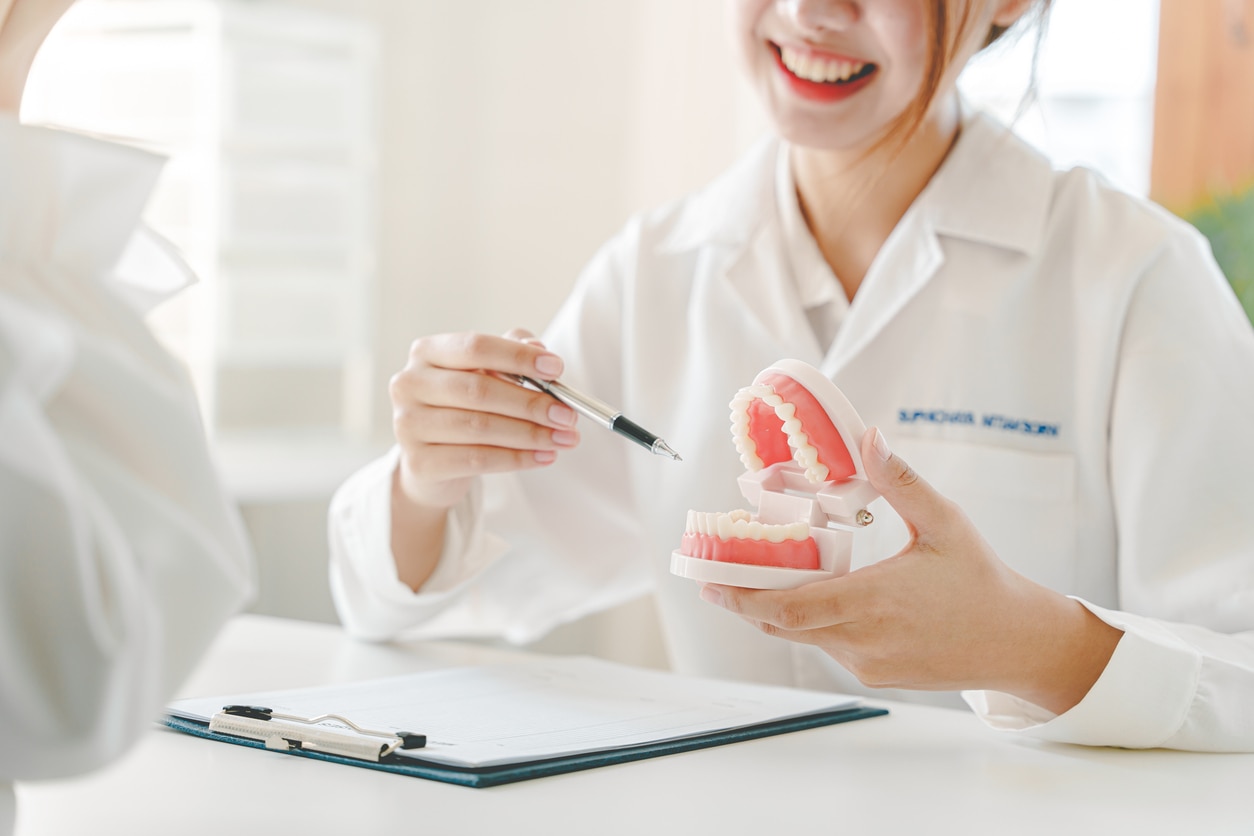
Oral hygiene is essential for preventing dental issues such as cavities, gum disease, and bad breath. Regularly brushing and flossing can remove plaque and bacteria that can lead to oral health problems. Good oral hygiene also contributes to overall health, as poor oral health has been linked to various systemic conditions. Taking care of your teeth and gums helps maintain a healthy mouth and boosts confidence and well-being.
What health issues are caused by inadequate oral hygiene?
Poor oral hygiene impacts teeth and can adversely affect the entire body. Unchecked bacteria from the mouth can travel to the whole body and cause various health issues.

- Oral disease
- Risk for heart disease and strokes
- Respiratory illnesses
- Risk for diabetes
- Risk for cancer
- Risk for suffering from Dementia
- Other serious issues: Infertility problems, premature birth and more
Good oral health routine 1: Brush twice a day with proper tools*
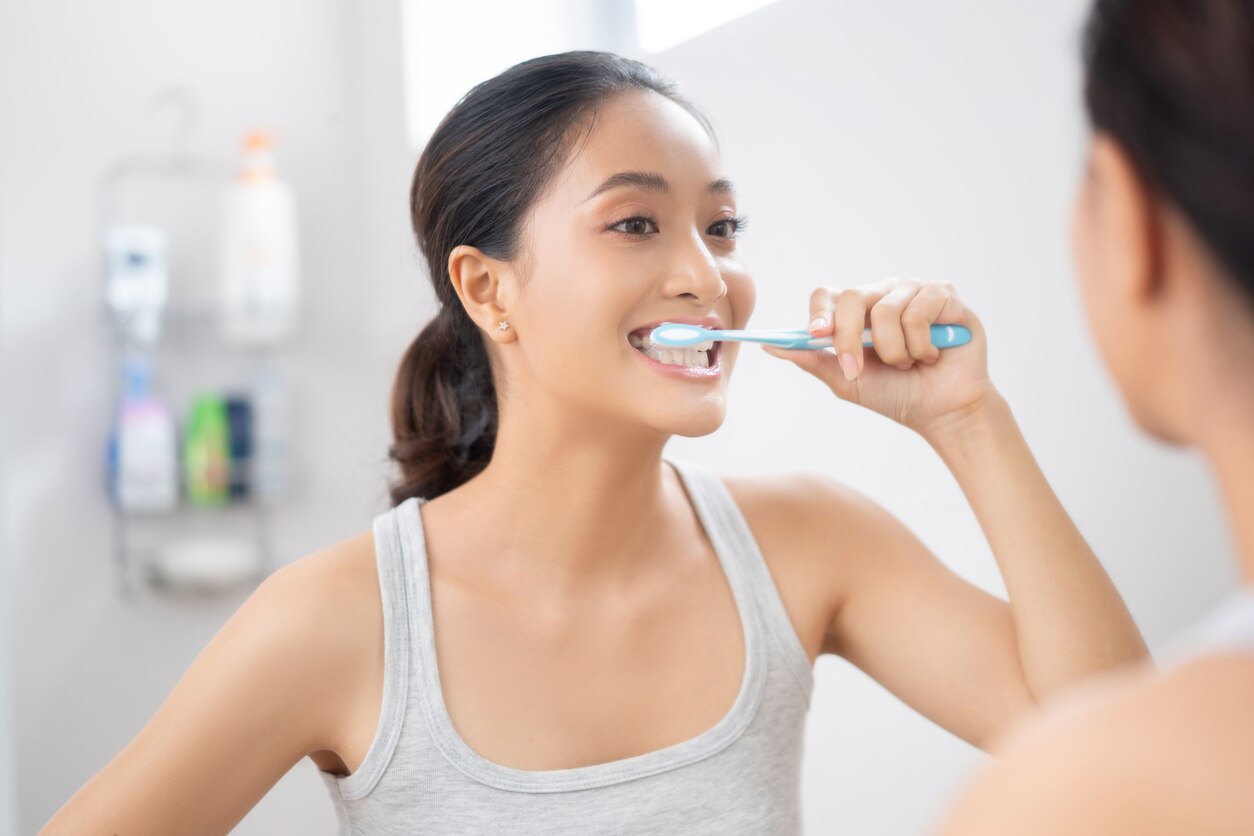
Brushing your teeth at least twice daily with fluoride toothpaste and a soft-bristled toothbrush is essential to maintaining good oral health.
To brush your teeth properly, put a pea-sized amount of toothpaste on a soft-bristled toothbrush. Hold the toothbrush at a 45-degree angle to your gums and brush in gentle, circular motions. Make sure to brush each tooth’s front, back, and top surfaces, as well as your gumline. Spend at least two minutes brushing your teeth, reaching all areas of your mouth. Don’t forget to brush your tongue to remove bacteria and freshen your breath.
Good oral health routine 2: Floss once daily*
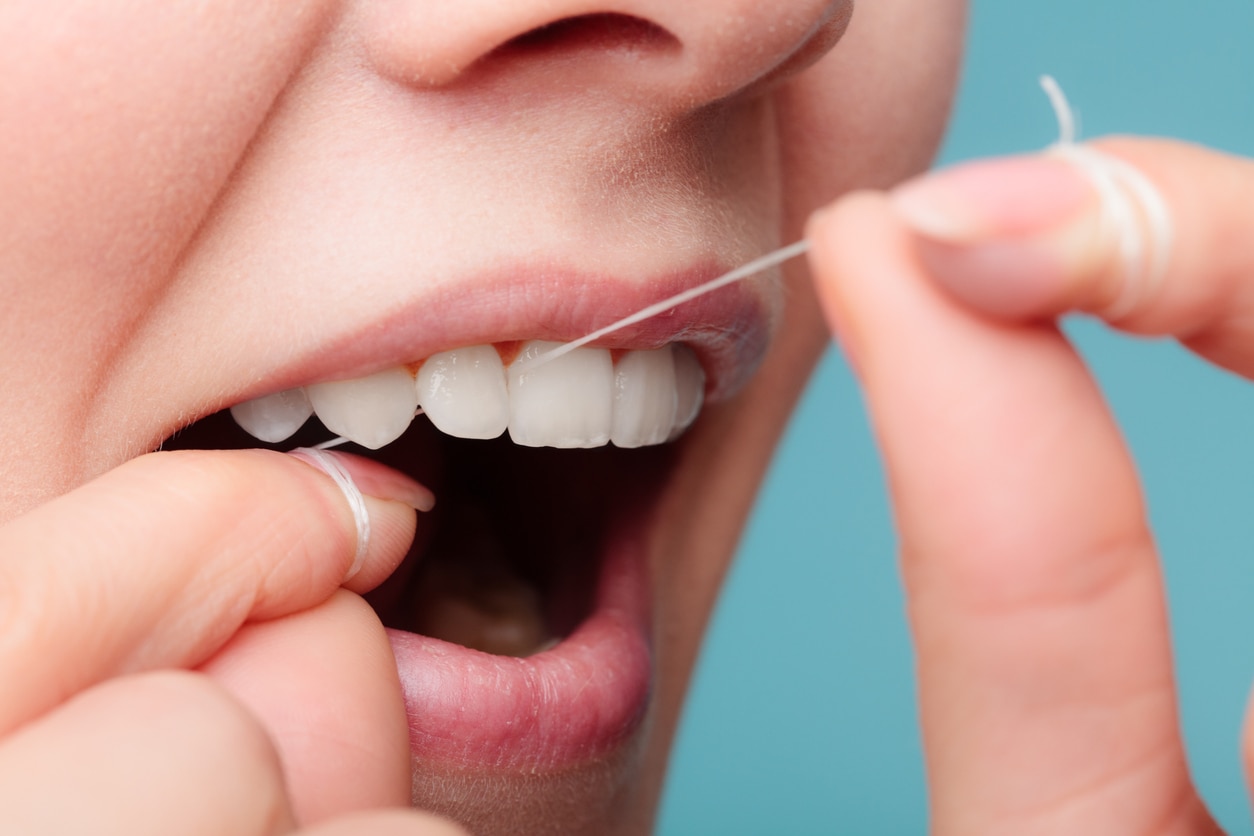
Flossing daily helps remove plaque and food particles from between the teeth that brushing alone may not reach, promoting healthy gums and preventing cavities.
Good oral health routine 3: Use mouthwash once daily*
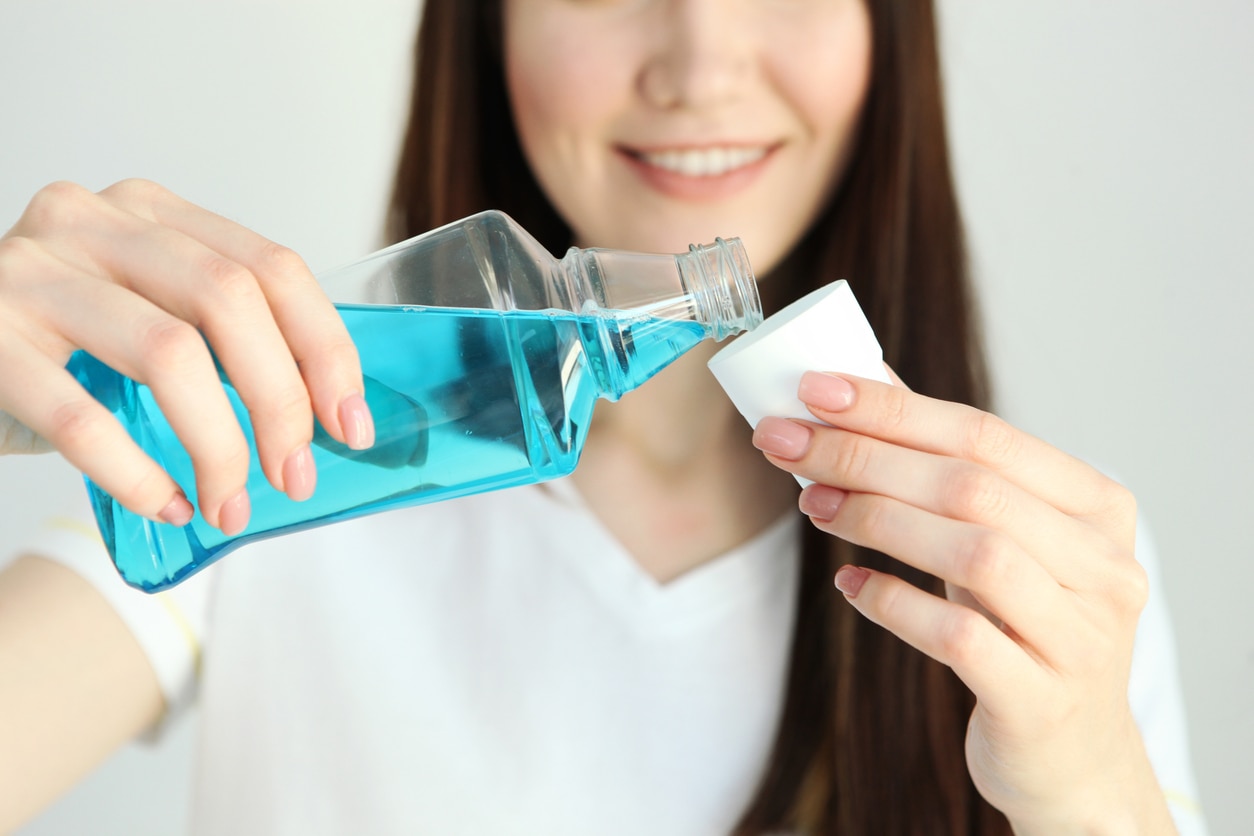
To effectively incorporate mouthwash into your oral health routine, choose one approved by the ADA for safety and effectiveness. Use it after brushing and flossing, either in the morning or at night before bed. Pour the recommended amount into a cup and swish it around in your mouth for 30 seconds to 1 minute, making sure to gargle and reach the back of your mouth and throat.
Good oral health routine 4: Regular check-ups with a dentist at least twice a year*

Dental visits every six months allow for professional cleaning, examination, and early detection of potential dental issues. Additional search keywords: dental check-up, dental exam, preventive dental care.
Good oral health routine 5: Avoid smoking and alcohol^

Smoking and excessive alcohol consumption can have detrimental effects on oral health, increasing the risk of gum disease, tooth decay, and oral cancer.
Good oral health routine 6: Limit sugary and acidic foods and drinks^

A diet high in sugar, acidic foods, and beverages can contribute to tooth decay and erosion. Limiting intake can help maintain healthy teeth and prevent cavities.
Good oral health routine 7: Replace your toothbrush every 3-4 months^
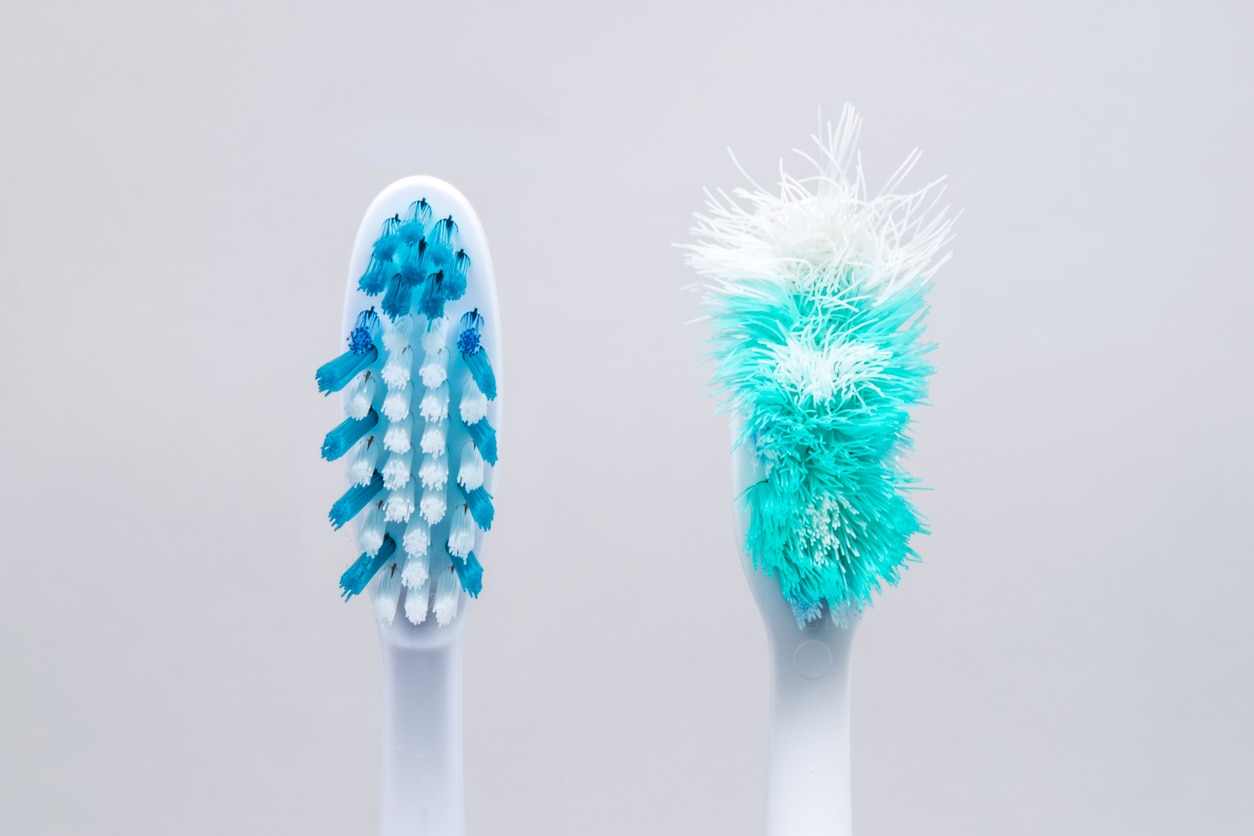
Regularly changing your toothbrush every 3-4 months or sooner if the bristles become frayed helps ensure effective cleaning and prevents bacteria buildup on the brush.
Reference:
* Oral Hygiene: Best Practices & Instructions for Good Routine
https://my.clevelandclinic.org/health/treatments/16914-oral-hygiene
^11 Ways to Keep Your Teeth Healthy
~ 10 Health Issues Caused By Bad Oral Health
https://west85thdental.com/10-health-issues-caused-by-bad-oral-health/










